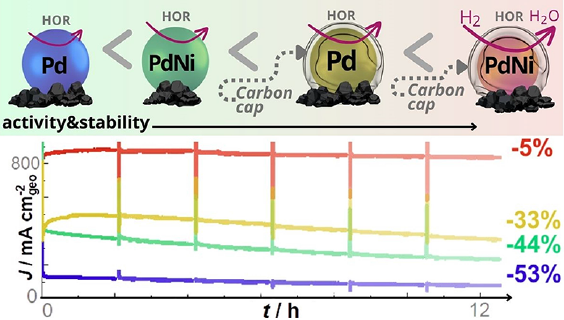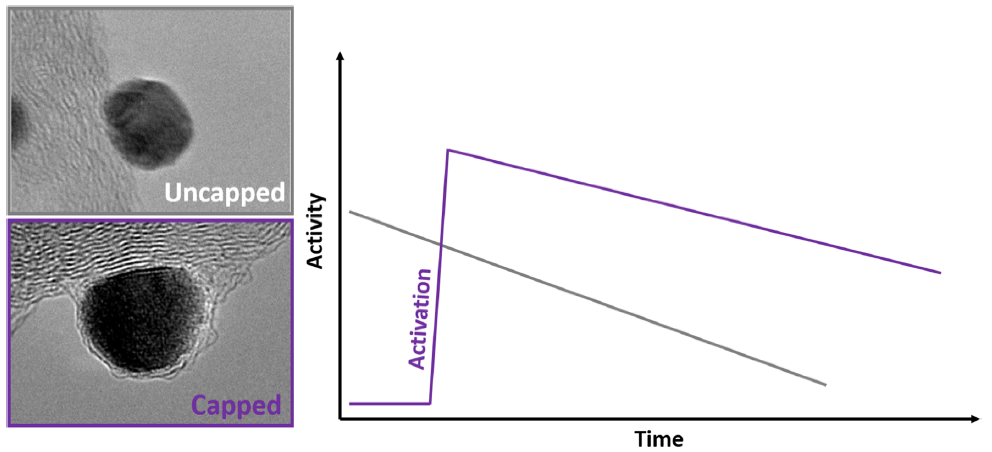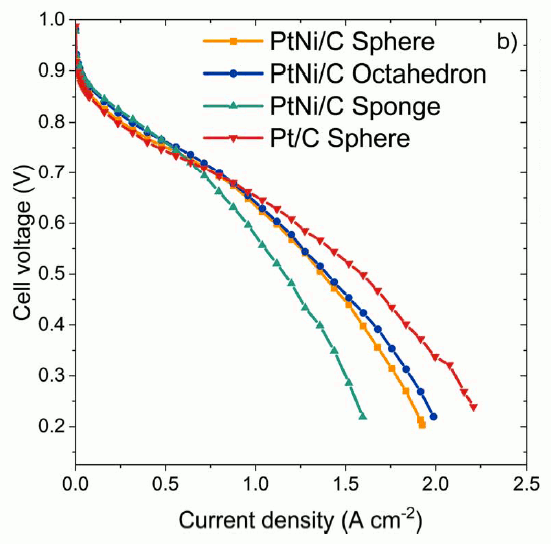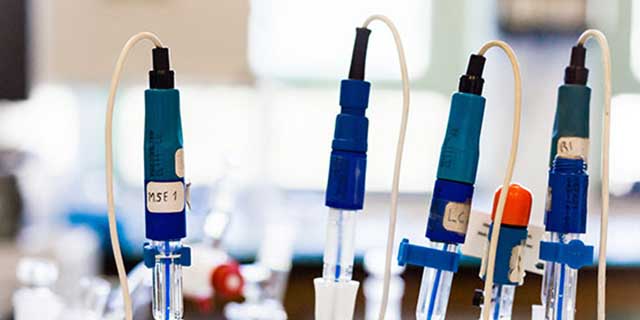Work is being carried out on various aspects of ‘low-temperature’ fuel cells using polymer membranes. In acidic environments, for proton exchange membrane fuel cells (PEMFC), research is focusing on increasing the operating temperature to around 95°C for better heat flow management in heavy-duty applications (buses, lorries, trains, aircraft, etc.). In alkaline environments, work is being carried out on improving the use of platinum at the anode for hydrogen oxidation (HOR: hydrogen oxidation reaction), in particular through its encapsulation in carbon layers. Studies are also being conducted on hydrogen-rich fuels (sodium borohydride, hydrazine, etc.), which are themselves stable in alkaline environments and are being considered as alternatives to the direct use of H2.
 |
 |
 |
The team is involved in the PEPR-H2 PEMFC95 project. This work is carried out through numerous collaborations, both academic and industrial.
Some recente publications:
- Sgarbi, R. et al. Improved Activity and Durability of Carbon-Capped Pd and PdNi CatalystsFrom Model Active Layers to Anion-Exchange Membrane Fuel Cell Electrodes. ACS Catal. 15, 9379−9392 (2025). https://doi.org/10.1021/acscatal.5c00704
- Oshchepkov, A. G., Braesch, G., Bonnefont, A., Savinova, E. R. & Chatenet, M. Recent Advances in the Understanding of Nickel-Based Catalysts for the Oxidation of Hydrogen-Containing Fuels in Alkaline Media. ACS Catal. 10, 7043-7068 (2020). https://doi.org:10.1021/acscatal.0c00101
- Roiron, C., Martin, V., Kumar, K., Dubau, L. & Maillard, F. Assessing Pt and Ni dissolution mechanism and kinetics of shape-controlled oxygen reduction nanocatalysts. Electrochim. Acta 477 (2024). https://doi.org/10.1016/j.electacta.2024.143760
- Labarde, Q., Godoy, A. O., Dubau, L., Micoud, F. & Chatenet, M. Carbon-Capped PtNi Catalysts for the Oxygen Reduction Reaction in Acidic Environment: A Durability Study. Electrocatal. 16, 117-131 (2025). https://doi.org/10.1007/s12678-024-00904-8



